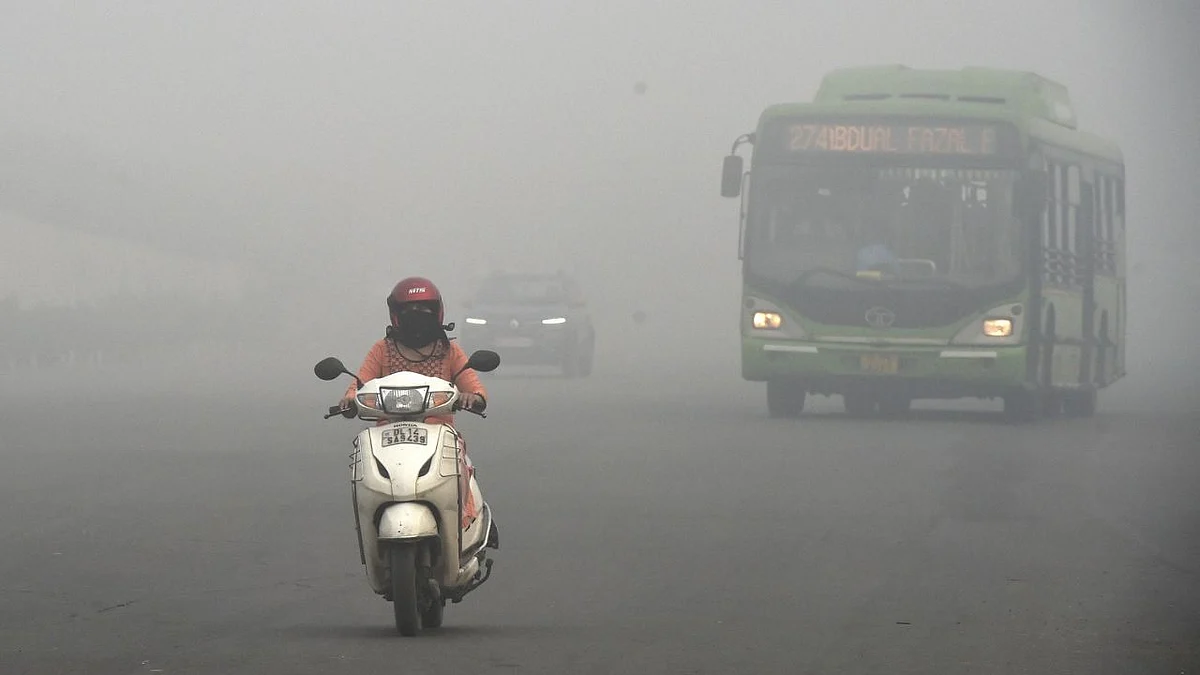Days After Diwali, New Delhi Air Quality in 'Severe' Category With AQI of 432
Meanwhile, Noida's overall air quality also ranked in 'severe' with AQI standing at 575, according to SAFAR data.

advertisement
New Delhi's air quality remained in the 'severe' category for the third consecutive day on Monday, 8 November morning, with the System of Air Quality & Weather Forecasting & Research (SAFAR) recording the Air Quality Index (AQI) at 432.
This comes even as SAFAR indicated that the AQI levels will improve after Sunday evening.
The national capital had awoken to a thick blanket of smog the day after Diwali, which witnessed the bursting of crackers despite government guidelines. The air pollution levels in Delhi had been climbing steadily even before the crackers were lit on Thursday evening.
Poorest Post-Diwali AQI in 5 Years
On Diwali, the overall air quality had slipped to the severe category and went on to reach 462 on Friday, 6 November, making it the poorest post-Diwali air quality in five years.
According to PTI, the Central Pollution Control Board (CPCB) data showed that the AQI the day after Diwali was 435 in 2020, 368 in 2019, 390 in 2018, 403 in 2017, and 445 in 2016.
Meanwhile, the AQI was 382 on Diwali day this year, 414 in 2020, 337 in 2019, 281 in 2018, 319 in 2017, and 431 in 2016.
Delhi’s environment minister Gopal Rai has pinned the blame on farm fires and firecrackers, and has hit out at the Bharatiya Janata Party (BJP) for allegedly making people burst firecrackers on Diwali.
(With inputs from PTI and ANI.)
(At The Quint, we question everything. Play an active role in shaping our journalism by becoming a member today.)